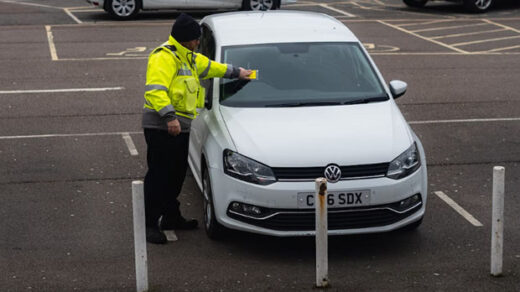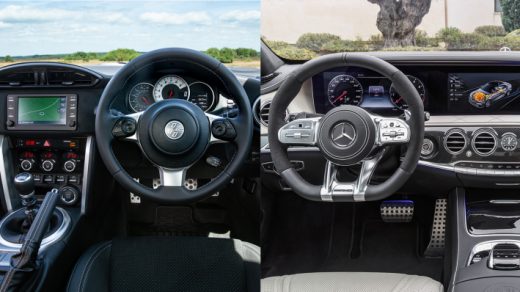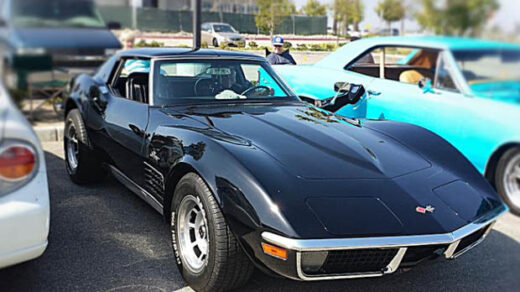Have you ever met the situation of the car shaking? Do you know why your car shakes when parked? Today we are going to discuss this problem and what to do.
Read More: How Long Can I Leave My Car Running While Parked?
Table of Contents
Causes of Shaking
1. Soiled injectors for fuel
Modern vehicles are highly developed devices that are built to be as fuel-efficient as feasible. High-pressure fuel injectors that deliver the ideal amount of gasoline into the engine’s cylinder at the proper moment are one method this is accomplished. Fuel injectors are subjected to high temperatures and fuel pressure, and over time, it’s possible that carbon residue from combustion will clog the tiny nozzles, known as pintles. Poor performance and rough idling are caused by clogged fuel injectors that are unable to deliver the precise amount of fuel required for combustion or by spray patterns that do not successfully promote combustion.
2. Worn ignition coil, spark plugs, and wiring
A spark must be present in addition to the air and fuel combination for combustion to occur. Spark plug wire, coils, and spark plug itself produce the voltage needed for each cylinder to ignite. Oil or carbon buildup on used or old spark plugs significantly reduces the power produced by ignition.
Your spark plugs will always spark enough if you replace them every 30,000 to 50,000 miles. Additionally, you can avoid damaging the electrodes, which could seriously harm the ignition system. Rough idling might result from broken ignition components in addition to engine problems. Similar to spark plugs, the ignition coil can degrade with time, leading to misfires and a check engine light.
3. Fourth Vacuum Leak
Along with the assistance of a throttle that controls engine speed and airflow, a vacuum in the intake manifold, and hoses beneath the hood of your automobile, these components help produce a vacuum for air and fuel. These rubber hoses eventually deteriorate and might even start to leak, especially in Arizona. The engine will start to misfire, produce a rough idle, and increase in RPMs when too much air is added to the fuel mixture.
4. Filters that are clogged
Your engine’s air filter is capturing a variety of impurities that could harm your engine as you travel down the road. These filters accumulate dust, grime, and other debris over time, obstructing the appropriate air movement required to ignite the fuel mixture. A lack of air leads the engine to run “rich,” which can lead to a rough idle and an increase in fuel usage.
5. Oxygen Sensor
The oxygen sensor measures the amount of oxygen in the exhaust as a component of the emissions system. The computer in the car uses this data to determine the ideal mixture of fuel and air for the cleanest and most effective combustion. The sensor may stop working over time as a result of repeated exposure to heat, carbon deposits, or aging. The vehicle’s computer receives incorrect information when the oxygen sensor malfunctions, which could lead to the engine running too rich or too lean and causing a rough idle.
6. Mounts for motors
Your engine is kept connected to the vehicle via motor mounts. At idle, a vibration is produced by weak or damaged mounts that are unable to keep the engine securely in the engine compartment. If the shaking stops when the car is in neutral, the vibrations may be coming from the motor mounts.
Obtain An Expert Opinion
Your rough idle problem could be caused by filthy fuel injectors, spark plugs, wiring, air filters, hoses, or sensor, but a trained mechanic will need to examine the car to find the source. Along with the elements mentioned above, the technician will also look at:
- Sensor for throttle position
- Engine sensor for coolant temperature
- Mas sensor for airflow
- Air idle control valve
- Thoroughbred valve
- A fuel pump issue
- Leak detection head gasket
- Control of evaporative emissions
The Bottom Line
The most frequent causes of car shaking when parked are old spark plugs or vacuum leaks. It may also be brought on by faulty gasoline pumps, worn serpentine belts, loose or damaged engine mounts, or any other fuel-related problems.
Because your car is still running, it can be tempting to ignore a harsh idle for a while, but this is the last thing you want to do. The likelihood that the issue may worsen increases the longer you wait to address it.
Fix the issue now, before your engine has a chance to break! If not, a problem you could have solved for a few hundred dollars could end up costing you several thousand.
Read Next:



